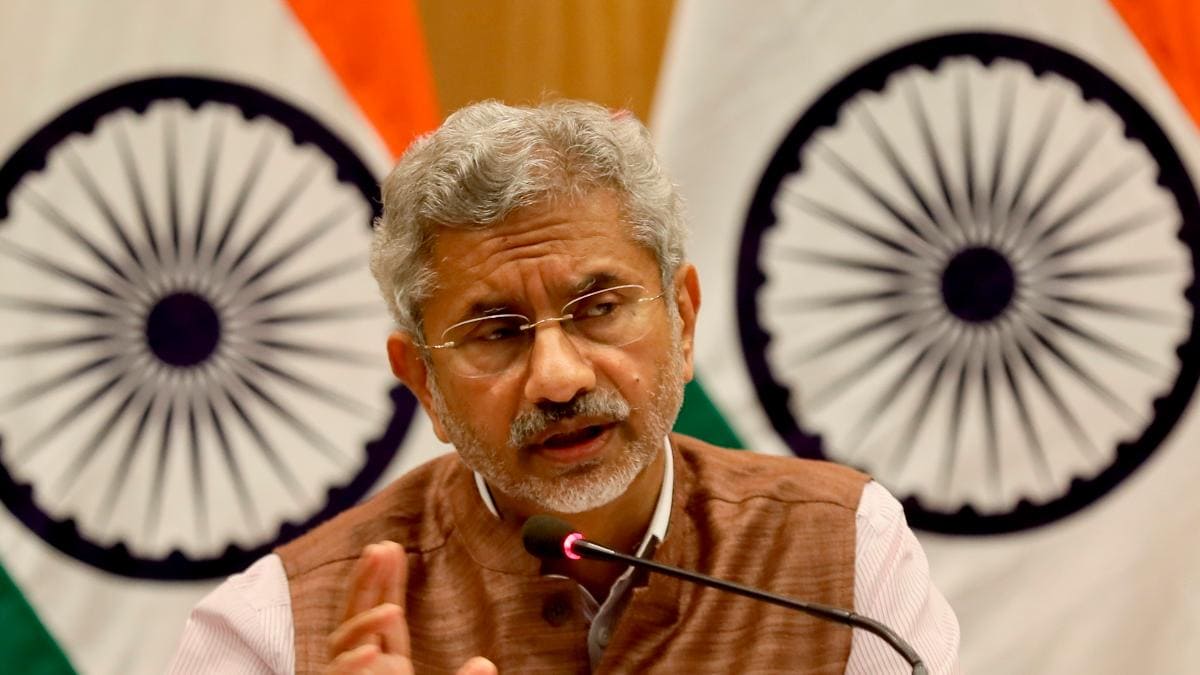


During one of his interactions with the media in the US, External Affairs Minister S. Jaishankar emphatically and unequivocally said that the need to reform the United Nations Security Council (UNSC) cannot be denied forever. Jaishankar also said that India deserved a place as a permanent member of this global body. He, however, in the same breath, said that India never believed that this would be an easy process. What Jaishankar seemingly sought to suggest was that the Indian diplomacy led by him is going to be more aggressive in future for New Delhi’s mission, aimed at achieving a permanent UNSC seat.
Undeniably, India has been at the forefront of the years-long efforts for the Security Council reform. It has long sought for itself a permanent seat on UNSC as well. In what augurs well for India’s quest for a permanent membership of this body, Jaishankar succeeded in giving further momentum to the entire campaign in this direction during his week-long visit to the United Nations. His efforts saw renewed momentum on the front of reform at the UN General Assembly in New York, with scores of countries including four of the five powerful nations openly supporting India’s claim for a permanent seat on the council. China continues to be opposed to India’s campaign for membership. It has pushed Pakistan’s candidacy just to scuttle India’s move to gain entry into the coveted global body. Beijing is opposing any proposal on Japan’s permanent seat on the council as well. This is the reason why India and Japan have decided to run the campaign jointly for their UNSC ambitions.
Irrespective of what China may be thinking, Jaishankar continued to work hard at UNGA and successfully set a strong and powerful narrative, underlining the urgent need to reform the UNSC and its expansion to accommodate New Delhi as a permanent member. At the UNGA, a number of countries including the US and Russia, both having veto powers in the UNSC, reaffirmed India’s views after deliberating on the narrative given by the EAM. It is a big diplomatic achievement that the “reform the UNSC” campaign by India got such a big boost, with massive support from various global quarters. Over 30 countries led by India with St Vincent and Grenadines finally issued a joint statement calling for reforms of the UNSC. This amounts to India’s success in mobilizing global opinion in favour of UN reform, with China obviously watching. It was a good move by the EAM that he raised this issue during his all bilateral meetings in New York. India believes, and rightly so, that the campaign at this level will go a long way in building pressure on China, which is one of the five permanent members having veto power. The other four permanent members are France, Russia, the UK and the US. India is among the 10 non-permanent members of the body. Only a permanent member has the power to veto any substantive resolution. India seeks permanent membership with the veto power.
That US President Joe Biden endorsed India for a permanent seat on the Council came as a big boost for India’s mission in Washington. Jaishankar himself pointed it out, saying that Biden has offered most explicit American backing on UNSC reforms. In fact, Washington has supported India’s campaign for a permanent UNSC seat on earlier occasions as well. What is also true is that all the five permanent members were earlier opposed to any idea of UNSC expansion.
But gradually, the US, France, the UK and Russia started changing their mind, which is attributable also to a strong campaign by India that succeeded in garnering support of other members of the global community. What India needs to do is to continue to work hard to ensure that the other major powers persuade China to remove its objection to India’s claim for a permanent seat. So, the annual gathering of the UN General Assembly in New York saw India’s “robust campaign” seeking a permanent seat on UNSC. The campaign got the much-needed fillip by virtue of Jaishankar being able to reach out to various countries at UNGA on the same issue.
What is needed is that New Delhi must continue to maintain the momentum that has been generated so far. With the SC reform set to be one of the themes of India’s Security Council (SC) presidency this December, New Delhi must utilise the opportunity to give further push to its campaign. December will mark the last of India’s current two-year stint as an elected non-permanent member of the Council.
T. Brajesh